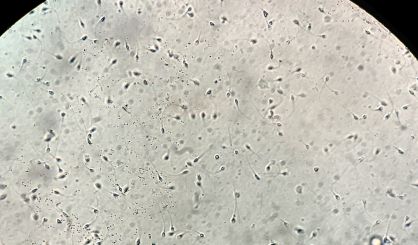
A new study found an association between what researchers are calling the biological age of sperm and reproductive success. While age is considered a major factor for women thinking of becoming pregnant, it is not often considered in male reproductive health, because men continually produce sperm throughout their lives. Dr. Rick Pilsner, professor of obstetrics and gynecology at Wayne State University School of Medicine who led the study, said chronological aging — or the normal passage of time — does not always capture the aging process of the sperm.
“Chronological age does not take into account the intrinsic [makeup of] your genes and how they function,” Pilsner explained. “As well as external factors such as environmental exposures, smoking, diet.”
Pilsner reported initial findings showed a new measure, referred to as a “sperm epigenetic clock,” could be a way to predict biological fitness of a person’s sperm, and thus could be useful in predicting reproductive success. He noted the study was largely conducted among a white population, and said a more diverse cohort is needed to validate the results. Pilsner added researchers think the sperm epigenetic clock could eventually be offered commercially to couples trying to start a family.
“This could inform clinical decisions on how long it may take to get pregnant naturally,” Pilsner suggested. “And could inform people going into infertility treatment at an earlier stage, rather than waiting a year or two and having an unsuccessful pregnancy.”
Pilsner pointed out the study found smoking is associated with a higher biological age. The next steps are finding out what other factors do, from chemical exposures to diet and exercise. He stressed another big question is whether epigenetic aging can be reversed, so men can be part of trying for a pregnancy in the healthiest way possible.






